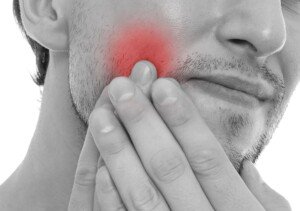
Things can definitely go wrong in the healing process following molar removal, so it’s important to know how to tell whether the site is healing well or not.
“As with any surgery, there’s going to be a recovery period,” says Laurence (Larry) Grayhills, DMD, MS, MAGD, member of the Academy of General Dentistry.
Dr. Grayhills continues, “Seven to ten days is a good estimate for the healing of an extracted tooth. If, after this time period, there is swelling, pain or a bad odor, it could be infected or developing a ‘dry socket.’”
What is a dry socket?
Dry sockets are uncommon, affecting two to five percent of people who have a tooth removed.
However, this is no consolation to the small percentage of patients who develop this uncomfortable, though very treatable, condition.
When the molar is removed, this leaves a hole (socket) in the bone. Part of the healing process is that of a blood clot forming in the socket to protect the bone and nerves.
If the clot dissolves or becomes dislodged, this vulnerable area is then exposed to anything that’s in your mouth, potentially leading to infection and pain (that can spread to the ear) that may last around six days.
Smoking increases the risk of a dry socket. So if you smoke and are planning on having your molars removed, you should quit smoking in the days leading up to the extraction.
To ensure that your molar extraction site is healing well, you can view it daily and check for a dry socket. If you see dark where the molar was removed, this is the protective blood clot.
If you see white, it’s a dry socket. Pain from a dry socket usually starts two days after the extraction.
Another checkpoint for the healing process is the development of unexplained bad breath and/or a bad taste in the mouth.
If you suspect that your molar removal site is not healing the way it should, don’t delay contacting your dentist.
The sooner the treatment, the less uncomfortable you’ll be.
Dr. Grayhills is with Mohip Dental & Associates, of FL, which provides the highest level of cosmetic, restorative, prosthetic and emergency dental care available.
 Lorra Garrick has been covering medical, fitness and cybersecurity topics for many years, having written thousands of articles for print magazines and websites, including as a ghostwriter. She’s also a former ACE-certified personal trainer.
Lorra Garrick has been covering medical, fitness and cybersecurity topics for many years, having written thousands of articles for print magazines and websites, including as a ghostwriter. She’s also a former ACE-certified personal trainer.
.










































